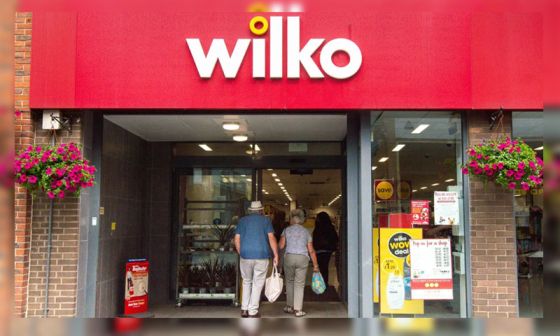Discover the essential strategies for reviving high streets, drawn from the downfall of Wilko and insights shared by Richard Harpin. Learn how to reconnect with customers, embrace uniqueness, and thrive in an omnichannel world.

Richard Harpin, the founder and chair of HomeServe and Growth Partner, has offered his insights on revitalizing struggling High Streets following the collapse of Wilko. Just outside Leicester city center, Charnwood Street was home to a distinctive small shop that holds a vital clue for regenerating Britain’s High Streets.
At number 131, James Wilkinson and Mary Cooper introduced a self-service ironmonger store in 1930, meeting the demand for such an approach. Wilko emerged from this venture, adhering to the founders’ philosophy of providing customers with what they desired and ensuring everyone received a fair deal. However, Wilko now faces uncertainty because it lost its unique purpose and connection with customers.
While issues like supply chain disruptions, lockdown aftermath, competition, living costs, and inflation contributed to Wilko’s challenges, the main factor was the disconnect from customers. The leaders were slow, out of touch, and resistant to learning about customer preferences, desires, and shopping habits. Consequently, the brand’s uniqueness declined. In contrast, successful companies like Greggs, B&M, and Next thrive because their leaders understand their company values and customer expectations.

Read This: Business Closures: Your Complete Guide to Shopping Rights and Protection
M&S recently reported increased profits due to their strategy focused on quality, value, technology investment, and store renovations. Richard Harpin’s HomeServe was acquired by Brookfield for £4.1 billion, and he emphasizes the importance of customer-focused business models. Smaller businesses, independents, and pop-ups run by enthusiastic entrepreneurs who build strong customer relationships grasp this concept well. Examples like NEOM Organics and Gymshark highlight this approach.
Harpin’s own experience includes a teenage venture in mail order fishing fly-tying, where he learned to listen to customers. By reacting quickly, he adapted to customer feedback and turned a fishing fly into a popular earring, distributing it to hair salons across the nation. He now invests £55 million to support entrepreneurs and city center regeneration.
Westminster Council’s plan to transform Oxford Street by collaborating with landlords to offer rent-free opportunities for unique online businesses to establish physical stores is promising. Harpin’s guide, “Eight Secrets To A £Billion Business,” emphasizes the significance of a strong omnichannel strategy, adapting successful methods, and seeking mentorship.
Reflecting on Wilko’s situation, Harpin identifies their issues with excessive categories, uncompetitive pricing, and unclear customer incentives. Despite this setback, he focuses on the future and aims to empower a new generation of businesses by embodying the spirit of 131 Charnwood Street. In an omnichannel world, key principles remain unchanged: being distinctive and attentive to customers.
Read More: